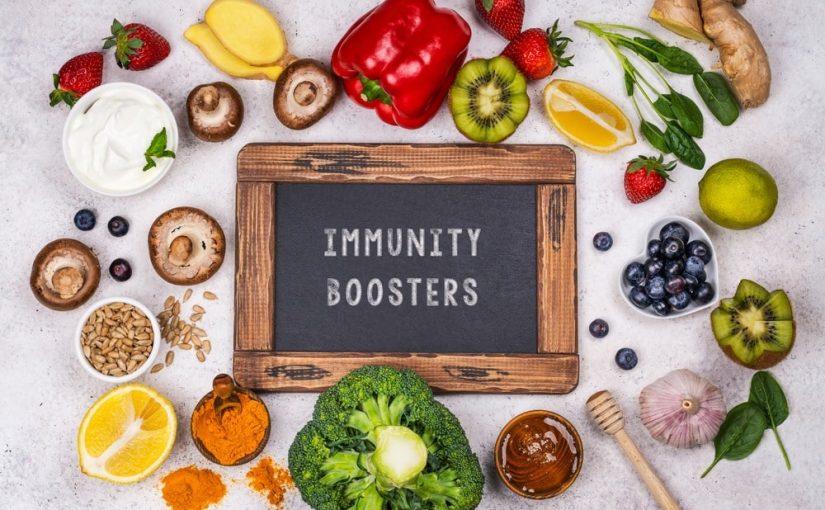Foods That Boost Immune System
In today’s fast-paced world, maintaining a strong and resilient immune system is more important than ever. Our immune system acts as a formidable defense mechanism, protecting us from harmful pathogens and infections.
While no single food can guarantee immunity, incorporating certain nutrient-rich foods into your diet can give your immune system the extra boost it needs to keep you healthy and thriving. Let’s explore foods that boost immune system which in turn can supercharge the body’s defense.
What is the Immune System?

For starters: The Immune System is Your Body’s Defense Superhero
Imagine having a superhero within you, working tirelessly day and night to protect you from harm and keep you safe from invaders. Well, you don’t have to imagine because your body already has this incredible defender: the immune system.
The immune system consists of various components that work together in a highly coordinated manner to protect the body. Let’s delve into the key players:
- White Blood Cells (Leukocytes)
- Lymphatic System
- Antibodies
- Thymus and Bone Marrow
When a foreign invader, like a virus or bacteria, enters the body, the immune system kicks into action, deploying a multi-step defense:
- Recognition
- Activation
- Proliferation
- Memory
What causes a Weak Immune System?
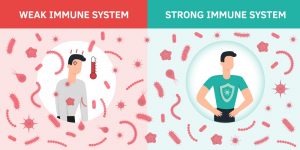
A weak immune system, also known as immunodeficiency, can be caused by various factors. Understanding the causes of a weakened immune system is essential to take appropriate measures to support and protect your health. Here are some common factors that can contribute to a weak immune system:
- Genetics
- Age
- Chronic Stress
- Poor Diet
- Lack of Sleep
- Sedentary Lifestyle
- Smoking and Alcohol Consumption:
- Exposure to Environmental Toxins
- Overuse of Antibiotics
Foods that weaken Immune System:

Here are some foods and habits that can weaken the immune system:
- Sugary Foods and Beverages: High-sugar diets can suppress the immune system. Consuming excessive sugar can lead to inflammation and negatively affect the ability of white blood cells to combat infections.
- Processed Foods: Processed foods are often high in unhealthy fats, salt, and additives, which can contribute to chronic inflammation and weaken the immune response.
- Excessive Alcohol: Heavy alcohol consumption can impair the function of white blood cells, making it harder for the immune system to fight off infections.
- High-Sodium Foods: A diet high in salt can lead to elevated blood pressure and inflammation, potentially weakening the immune system over time.
- Trans Fats: Trans fats found in many processed and fried foods can cause inflammation and suppress immune function.
- Excessive Caffeine: While moderate caffeine consumption is generally considered safe, excessive intake can lead to disrupted sleep patterns and contribute to a weakened immune system.
- Uncooked and Undercooked Foods: Eating raw or undercooked meat, eggs, or seafood can expose you to harmful bacteria and increase the risk of foodborne illnesses.
- Unwashed Fruits and Vegetables: Eating unwashed fruits and vegetables can expose you to harmful bacteria and parasites, potentially compromising the immune system.
- High-Fat Dairy Products: High-fat dairy products may contribute to inflammation and negatively impact immune function in some individuals.
- Unpasteurized Foods: Consuming unpasteurized milk, cheese, or juices can expose you to harmful bacteria, increasing the risk of infections.
- Overconsumption of Red Meat: Eating large amounts of red meat may lead to chronic inflammation, affecting immune health.
- Allergenic Foods: For individuals with food allergies or sensitivities, consuming allergenic foods can trigger immune responses that weaken the overall immune system.
Foods that boost Immune System:
Boosting your immune system involves incorporating nutrient-rich foods into your diet that can support immune function and enhance your body’s ability to fend off infections. Here are some immune-boosting foods that you should consider including in your daily meals:
Citrus Fruits:

Citrus fruits are an excellent source of vitamin C, also known as ascorbic acid. Vitamin C is a potent antioxidant that helps protect the body’s cells from oxidative stress caused by free radicals.
It supports the immune system by promoting the production and function of white blood cells, which play a vital role in defending the body against infections. Vitamin C is essential for the production and proper functioning of immune cells, such as lymphocytes and phagocytes.
These cells are critical in identifying and destroying harmful pathogens, including bacteria and viruses. Citrus fruits contain bioactive compounds with anti-inflammatory properties.
Red Bell Peppers:

Red bell peppers contain even more vitamin C than citrus fruits, along with beta-carotene, which the body converts into vitamin A. Both of these nutrients are essential for maintaining a robust immune system.
Vitamin C enhances the function of various immune cells, such as white blood cells and lymphocytes, helping the body defend against infections and viruses. Red bell peppers contain a variety of antioxidants, including beta-carotene, quercetin, and luteolin.
These antioxidants help neutralize harmful free radicals in the body, reducing oxidative stress and inflammation, which can weaken the immune system. Red bell peppers are an excellent source of vitamin A, particularly in the form of beta-carotene.
Vitamin A is essential for maintaining the health of the mucous membranes in the respiratory and digestive tracts, which act as a first line of defense against pathogens.
Broccoli:
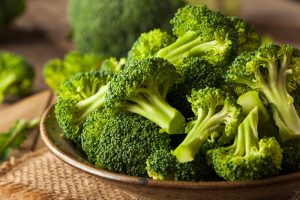
Packed with vitamins A, C, and E, as well as fiber and antioxidants, broccoli is a superfood that supports overall immune health. Broccoli contains various antioxidants, including sulforaphane, quercetin, and beta-carotene.
These antioxidants help neutralize harmful free radicals, reducing oxidative stress and inflammation that can weaken the immune system. Broccoli is a good source of vitamin A in the form of beta-carotene. Vitamin A is essential for maintaining the health of mucous membranes in the respiratory and digestive tracts, acting as a barrier against pathogens.
Broccoli is rich in glucosinolates, which are sulfur-containing compounds that have been shown to have immune-enhancing properties. They support the body’s detoxification processes and help protect against certain infections.
Garlic:
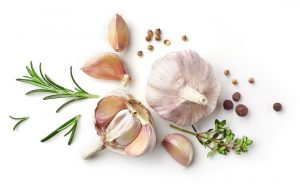
Garlic has been used for its medicinal properties for centuries. It contains sulfur-containing compounds that can boost the immune system and help the body fight off infections.
Allicin: Allicin is one of the key bioactive compounds found in garlic. It is formed when garlic is crushed or chopped and is responsible for its characteristic odor and flavor. Allicin has antimicrobial properties and may help the body fight off infections caused by bacteria, viruses, and fungi.
Garlic is rich in antioxidants, including flavonoids and sulfur compounds. These antioxidants help neutralize harmful free radicals in the body, reducing oxidative stress and inflammation, which can weaken the immune system.
Ginger:
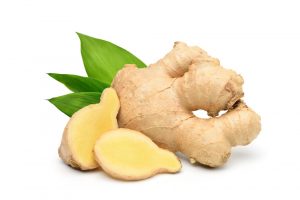
Ginger has anti-inflammatory and antioxidant properties that can support the immune system and aid in reducing inflammation in the body. Gingerol is the primary bioactive compound in ginger, responsible for its characteristic pungent flavor and many of its health benefits.
Gingerol has antioxidant and anti-inflammatory properties, which can help support immune function by reducing inflammation and oxidative stress. Ginger contains various antioxidants, such as flavonoids and phenolic compounds.
These antioxidants help neutralize free radicals and protect immune cells from damage, thereby supporting the immune system.
Spinach:
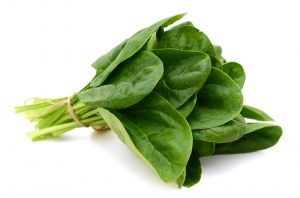
Spinach is rich in vitamin C, as well as beta-carotene and other antioxidants that promote immune health. The vitamins and minerals in spinach, including vitamin C, vitamin A, and zinc, help support the growth and activity of immune cells, such as white blood cells, which play a critical role in defending the body against infections.
Spinach is a good source of non-heme iron, which is essential for immune cell growth and function. Adequate iron levels help ensure that immune cells can carry out their roles effectively.
Spinach is high in dietary fiber, which promotes a healthy gut environment. A balanced gut microbiome is crucial for optimal immune function, as it helps regulate inflammation and supports the development of immune cells.
Yogurt:
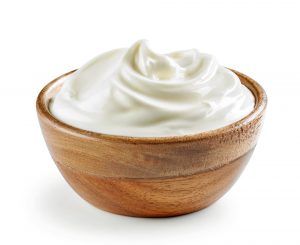
Yogurt and other fermented foods contain probiotics, which are beneficial bacteria that support gut health and, in turn, enhance the immune system. The live cultures in yogurt, such as Lactobacillus and Bifidobacterium species, help populate the gut with beneficial bacteria.
These probiotics maintain a healthy balance of gut microbiota, which is essential for optimal immune function. Probiotics have been shown to modulate immune cell activity and support the development and function of immune cells.
They enhance the body’s ability to identify and combat harmful pathogens, contributing to a more robust immune response.
Almonds:

Almonds are a great source of vitamin E, which is essential for maintaining a healthy immune system. Almonds are an excellent source of vitamin E, a powerful antioxidant that helps protect the body’s cells from damage caused by free radicals.
This antioxidant activity supports the immune system by preserving the integrity and function of immune cells. Almonds are rich in monounsaturated fats, which are heart-healthy fats that also have anti-inflammatory properties. Reducing chronic inflammation can help enhance immune function.
Almonds are a source of plant-based protein, which is essential for building and repairing tissues, including immune cells. Adequate protein intake supports the immune system’s ability to defend against infections
Turmeric:
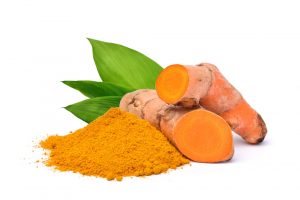
The active compound in turmeric, curcumin, has potent anti-inflammatory and antioxidant effects, making it beneficial for immune function.
Curcumin has been shown to stimulate the activity of certain immune cells, such as natural killer (NK) cells and T cells. These cells play a vital role in identifying and destroying infected or abnormal cells in the body.
Curcumin may influence the expression of various genes involved in immune function, leading to a balanced and appropriate immune response.
Others:

Chicken and turkey are rich in vitamin B-6, which plays a crucial role in supporting immune function. Sunflower seeds are packed with vitamin E and other nutrients that contribute to a healthy immune system. Kiwi is another excellent source of vitamin C and other nutrients that can strengthen the immune system.
Papaya is a tropical fruit loaded with vitamin C, as well as an enzyme called papain that has anti-inflammatory properties. Berries, such as strawberries, blueberries, and raspberries, are rich in antioxidants that combat oxidative stress and support immune health.
Green tea is packed with antioxidants, particularly catechins, which have been shown to enhance immune function. These also help the body fight against infection as they make the body’s immunity stronger.
Other Ways to boost your Immune System:

Here are some additional ways to support a strong and resilient immune system:
- Regular Exercise
- Get Adequate Sleep
- Manage Stress
- Hydration
- Avoid Smoking and Limit Alcohol
- Maintain a Healthy Weight
- Practice Good Hygiene
- Vitamin D
- Social Connections
- Vaccinations
- Limit Exposure to Germs
- Probiotics and Prebiotics
ENDNOTE:
The immune system is an incredible defense mechanism that keeps us safe from harmful invaders every day. It is a complex network of cells, tissues, and organs working together in harmony.
Understanding its functions and taking care of our overall health can help ensure that this superhero within us remains strong and resilient in protecting us from harm.
So, let’s celebrate and support our immune system – the unsung hero that keeps us healthy and thriving!
FAQs:
What are the Foods to calm the overactive immune system?
Fruits and vegetables (try for a rainbow of hues to maximize antioxidant variation), fish and fish oil, olive oil, ground flaxseeds, and spices such as ginger, rosemary, basil, and turmeric can all help to calm an overactive immune system.
How does zinc help the immune system?
Zinc is required for the appropriate development and function of cells that mediate innate immunity, such as neutrophils and NK cells. Zinc deficiency also affects macrophages. Zinc deficiency affects phagocytosis, intracellular killing, and cytokine generation.
What does the immune system protect the body against?
The immune system consists of various specialized cells, tissues, and organs that work together in a coordinated manner to detect, respond to, and eliminate these threats. The ability to recognize self from non-self is a fundamental aspect of the immune system, ensuring that it targets only harmful substances while preserving the body’s own cells and tissues.
How does vitamin C help the immune system?
Vitamin C promotes neutrophil recruitment to the site of infection, as well as phagocytosis, oxidant production, and microbial death.
How to boost your immune system naturally?
Apart from the foods that boost immune system. It is a holistic process that involves multiple lifestyle factors. It’s not about a quick fix but rather adopting a balanced and healthy approach to your overall well-being. Emphasize consistency and make these practices part of your daily routine to support a strong and resilient immune system naturally.
References:
- https://www.lifespan.org/lifespan-living/foods-boost-your-immune-system
- https://www.medicalnewstoday.com/articles/322412
- https://health.clevelandclinic.org/food-to-boost-your-immune-system/
- https://www.canyonranch.com/well-stated/post/10-ways-to-boost-your-immune-system-naturally/
- https://www.ncbi.nlm.nih.gov/pmc/articles/PMC5707683/

